Shalom stood disoriented in a Los Angeles airport as she faced immigration authorities. She knew nothing of America and had never interacted with white people before, let alone those interrogating her as a potential terrorist.
Only a few days earlier, she left her children and her mother, fleeing her homeland of Zimbabwe following a violent beating and sexual assault that nearly killed her. Subjected to a battery of tests there at the airport, she learned she was pregnant as a result of the assault. The officers advised her an abortion was possible.
Confronted with this shocking news and her grim options, selflessly she did not hesitate. She kept the baby, despite knowing it would be a painful reminder of the violence she experienced.
She said, “God saved my life. Who I am to say ‘no’ to another’s?”
This is how she escaped death and chose life, even when she had no home, no guarantee of safety and nobody to turn to—except God.
Forced to flee
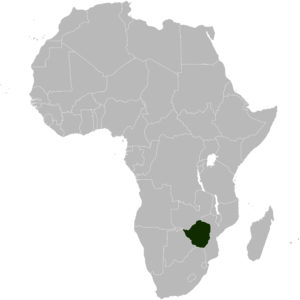
Entangled in political upheaval, corruption, hyperinflation and starvation, the people of the southern African nation of Zimbabwe live in desperation, as well as profound fear of even attempting to do something about it.
Such was the situation with Shalom, an asylum applicant, currently living and working at a Catholic Extension Society supported migrant shelter, La Posada Providencia, in the Diocese of Brownsville.
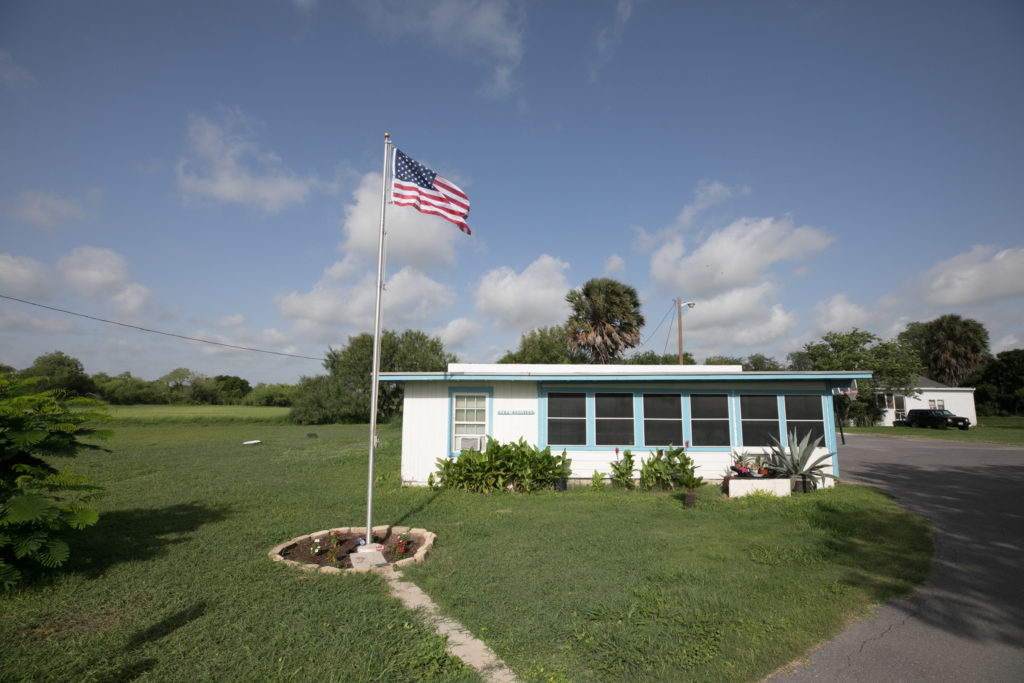
A brutal, ruling political party backed by crooked law enforcement targeted Shalom for simply holding opposing political beliefs. She and her two children left their home and were seeking peace and safety in another village.
They were tracked down by violent party loyalists in 2017. The officials took notice, and targeted her.
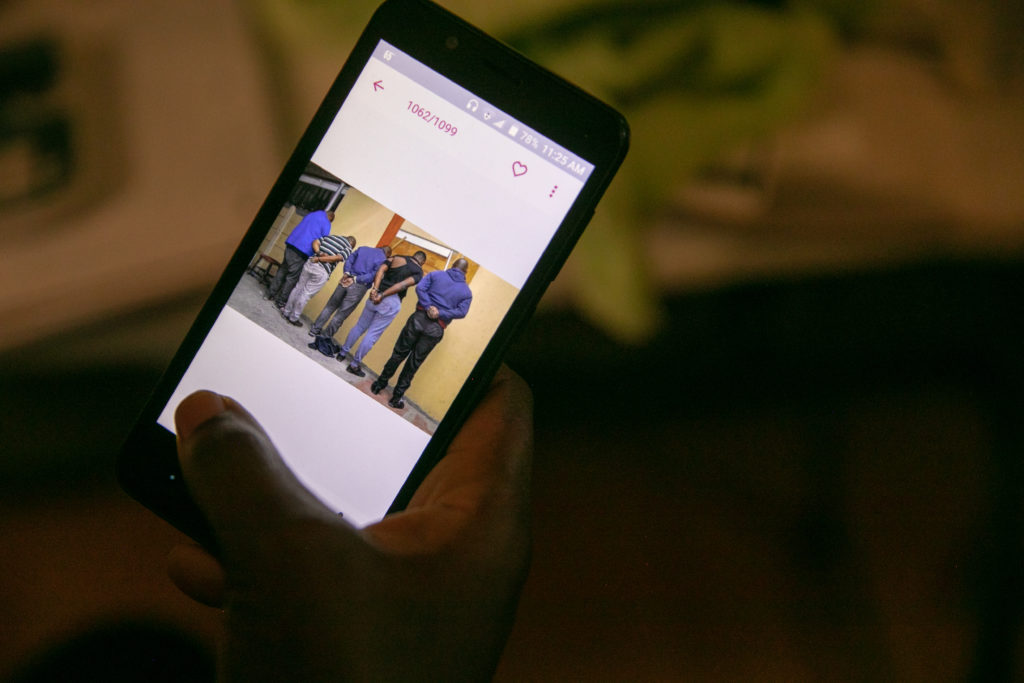
Shalom said, “It was almost evening, around 7 or 8. I was with my two kids. I thought we were being robbed. There were two men in the house. They started beating me.”
She was shown no mercy.
“I was beaten in front of the kids. They were told they would be killed if they screamed. I was sexually assaulted in front of my kids and left for dead. I remember regaining consciousness. My son was calling me, ‘Mom, Mom, wake up! Those people might come and kill us. Wake up, let’s go!’”
She regained consciousness when her son poured water on her, shouting, “Mom, Mom, wake up! Those people might come and kill us. Wake up, let’s go!’”
Shalom knew that they would be back for her. She could not go to the police, which are controlled by the party that attacked her. At her mother’s insistence, she left the children with her and fled, heartbroken, to another African country. A lawyer there said she could not be helped.
He put her on a plane headed for Ireland where she was also refused entry upon arrival. Forced back on the plane in Dublin, the flight crew informed her they were flying to Los Angeles, California.
When she learned that she was going to the United States, she broke down in tears. “I started crying. I didn’t know anything about the country.” She begged to exit the plane, but it was too late.
Her experience is like millions around the globe that have been forced to migrate from their home villages, their own countries and even their home continents.
Choosing life
Although she made the courageous decision to keep her baby, there was still doubt.
She said,
I wondered how I would raise someone who did not originate from love? But I chose to see beyond that. I told myself that he is mine. God gave him to me. So let him live to fulfill God’s purpose.”
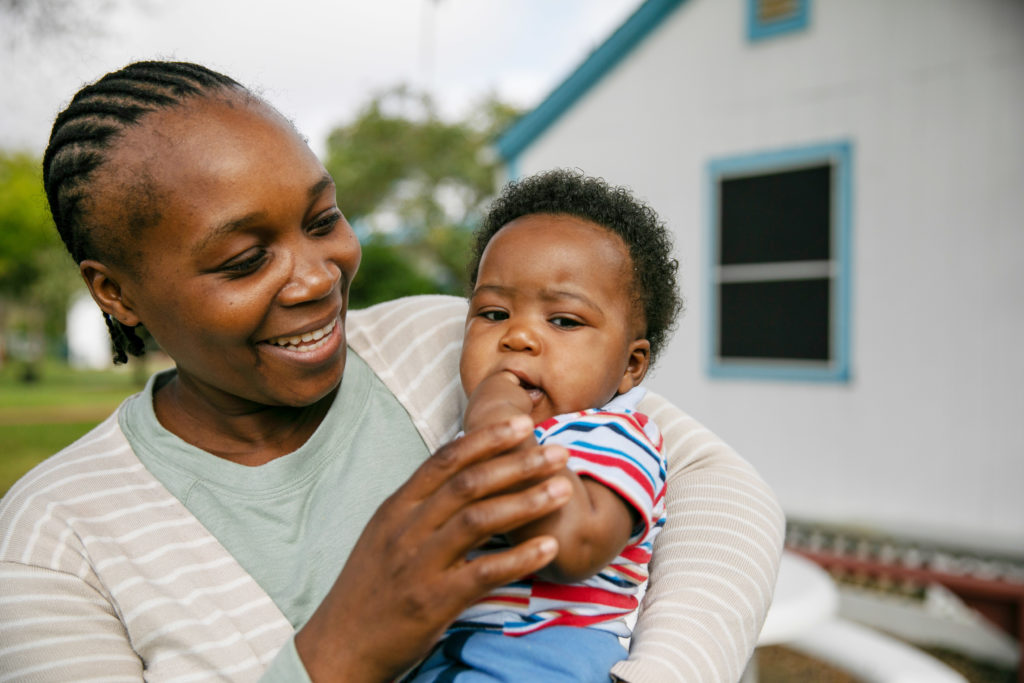
Shalom was placed in detention as an asylum seeker. During that time, she wrote to letter after letter to the shelters. La Posada Providencia in San Benito, Texas, was the only one to respond. She was eventually released with a court date but had no lawyer to represent her.
She arrived for her court date seven months pregnant. She explained, “I said a short prayer and told God, ‘I know I don’t have a lawyer, but I know your presence will be there with me.’”
Heading into the courthouse, Shalom noticed an African Catholic nun in parking lot. Realizing Shalom had no lawyer, the sister introduced her to her own immigration attorney. The kind lawyer brought her before the judge and got her case started. Afterward, he agreed to handle the case at no charge.
Shalom said, “God sent him to be there for me.” She cried tears of joy and was told by her new advocate, “I think we do have a good case.”
Shalom’s asylum case is ongoing, but she is still placing her trust in God. She now has a work permit. When her case is finally adjudicated, she hopes she can apply for and be reunited with the children she left behind in Zimbabwe.
In La Posada’s nurturing environment, she has finished her GED, learned to drive, and gave birth to the baby she was carrying.
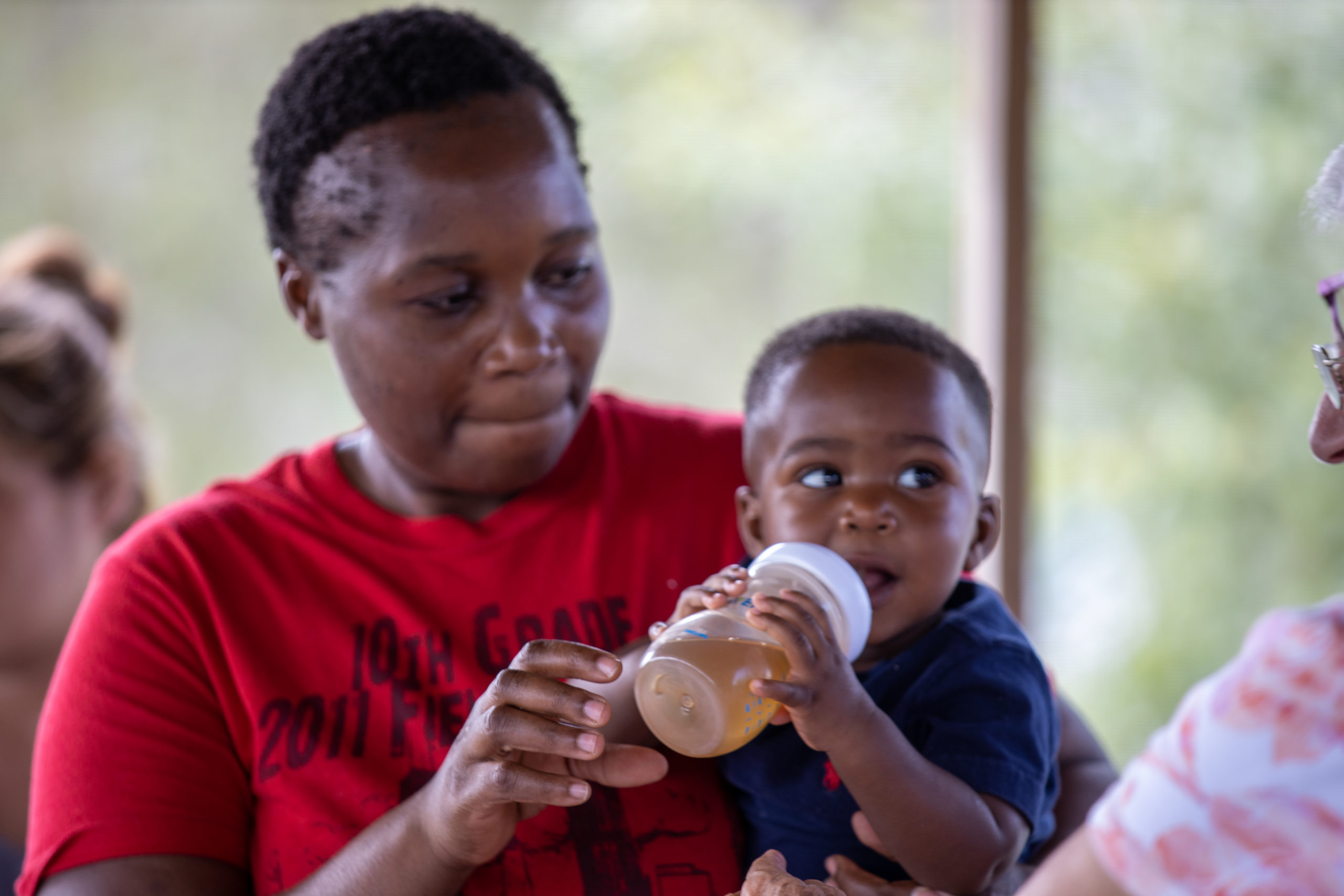
She named him Emmanuel, believing in the biblical meaning of the name, “God is with us.” God, she is convinced, has been walking hand in hand with her throughout this grueling ordeal, and with the new son she cherishes. Shalom said, “God doesn’t look at where I’m coming from. He’s only looking at where I’m going. And I am reminded of how faithful God is.”
Emmanuel is now 2 years old. He is thriving at La Posada, and is a blessing to everyone who meets him.
Catholic Extension Society is honored to support the live-saving ministry of La Posada. Since its founding in 1989 by the Sisters of Divine Providence, La Posada has served more than 9,000 migrants and asylum-seekers from 87 countries, helping to protect and nurture people escaping violence and persecution.
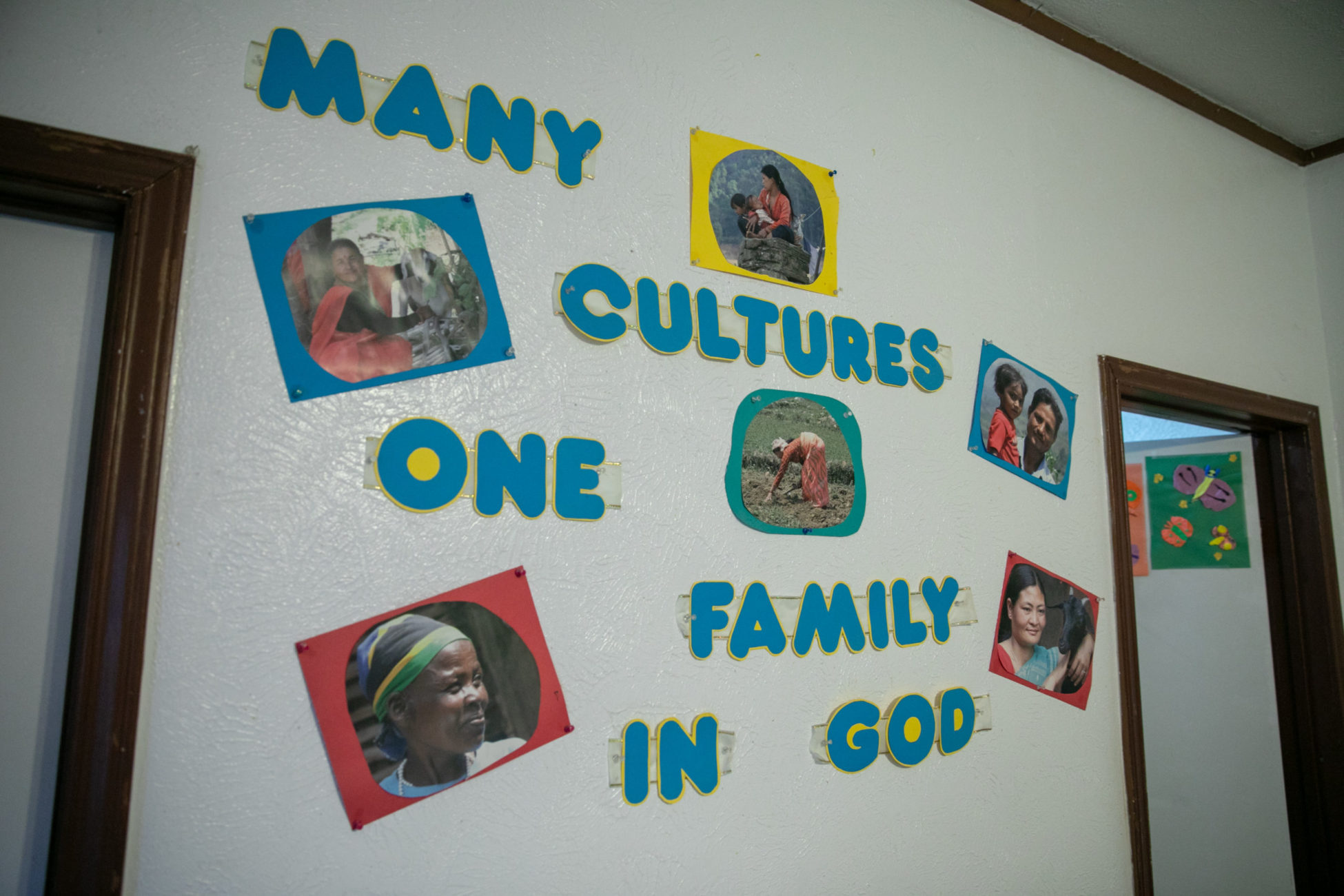
Through every life they serve, La Posada is, like Shalom, giving witness to the fact that God is truly with us, even in the worst of times and circumstances.


